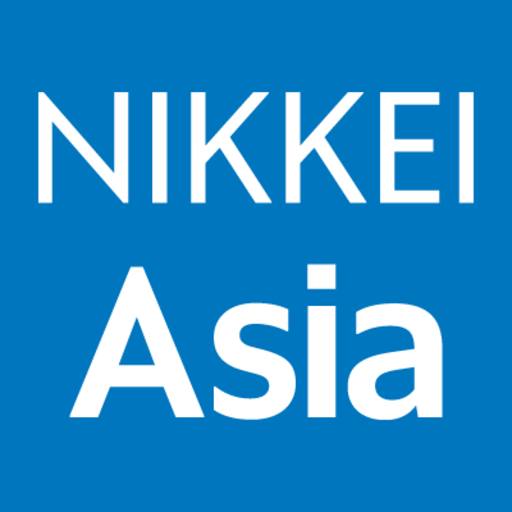Japan's Quest for Fairness in Currency Talks with the U.S.
April 20, 2025, 3:53 pm

Location: United States, District of Columbia, Washington
Employees: 1001-5000
Founded date: 1944
Total raised: $33.23M
In the intricate dance of international trade, Japan is stepping forward with a clear message: fairness. Prime Minister Shigeru Ishiba has taken the stage, emphasizing this principle as Japan prepares for crucial discussions with the United States regarding currency and trade. The backdrop is a complex web of tariffs, trade balances, and economic strategies that shape the relationship between these two economic giants.
The stakes are high. The U.S. has imposed tariffs on Japanese exports, with a notable 24% on certain goods. This pressure has ignited a firestorm of negotiations, with Ishiba at the helm, navigating the turbulent waters of trade policy. The Prime Minister's recent statements reflect a commitment to ensuring that Japan's interests are not overshadowed by U.S. demands.
At the heart of the discussions is the issue of currency manipulation. The U.S. has accused Japan of intentionally weakening the yen to bolster its exports. Ishiba, however, counters this narrative, asserting that Japan does not engage in such practices. Instead, he highlights the importance of a strong yen for the stability of Japan's export-driven economy. This is a delicate balancing act, akin to walking a tightrope, where one misstep could lead to economic turmoil.
Finance Minister Katsunobu Kato is set to meet with U.S. Treasury Secretary Scott Bessent in Washington. This meeting is crucial, as it will delve into the specifics of currency policy. Ishiba's call for fairness suggests a willingness to engage in dialogue, but it also signals Japan's determination to protect its economic sovereignty. The discussions will likely revolve around how both nations can achieve a stable exchange rate without compromising their respective economic interests.
Japan's massive holdings of U.S. Treasury bonds—over $1 trillion—add another layer to the negotiations. Some analysts speculate that Japan could leverage these assets in trade talks. However, Kato has dismissed this notion, emphasizing that trust and global economic stability should guide the discussions. This stance reflects a broader understanding that economic relationships are built on mutual respect, not coercion.
As the talks unfold, Japan is also considering increasing its energy imports from the U.S. Ishiba has hinted at the possibility of greater investment in American energy, particularly liquefied natural gas. This move could serve as a bargaining chip, showcasing Japan's willingness to engage in a mutually beneficial exchange. However, the question remains: can the U.S. deliver energy supplies consistently? This uncertainty looms over the negotiations, much like a cloud threatening rain.
The automotive sector is another focal point in the discussions. The U.S. has long criticized Japan's safety regulations as non-tariff barriers, hindering American car manufacturers' access to the Japanese market. Ishiba acknowledges these concerns but insists that Japan's safety standards are essential for its unique driving conditions. This is a classic case of differing perspectives, where what one side sees as a barrier, the other views as a necessity.
The potential relaxation of Japan's auto safety rules could pave the way for smoother trade relations. However, this move must be approached with caution. Japan's commitment to safety cannot be compromised, even in the face of external pressures. The challenge lies in finding common ground that satisfies both nations' needs without sacrificing core principles.
As the negotiations progress, the world watches closely. The outcome will not only impact Japan and the U.S. but also reverberate across the global economy. A successful agreement could foster a sense of stability, while a failure could lead to further tensions and economic repercussions.
In this high-stakes game, Ishiba's emphasis on fairness is a strategic choice. It reflects Japan's desire to engage in constructive dialogue while safeguarding its economic interests. The Prime Minister's approach is akin to a chess player, carefully considering each move to avoid pitfalls and seize opportunities.
The upcoming meetings in Washington will be pivotal. They will set the tone for future interactions between Japan and the U.S. The emphasis on fairness could lead to a more balanced relationship, where both nations can thrive. However, the path is fraught with challenges, and the outcome remains uncertain.
In conclusion, Japan's quest for fairness in currency talks with the U.S. is a testament to the complexities of international trade. As Ishiba leads the charge, the focus on trust, stability, and mutual respect will be crucial. The world is watching, and the stakes have never been higher. The dance of diplomacy continues, with each step echoing in the corridors of power and beyond.
The stakes are high. The U.S. has imposed tariffs on Japanese exports, with a notable 24% on certain goods. This pressure has ignited a firestorm of negotiations, with Ishiba at the helm, navigating the turbulent waters of trade policy. The Prime Minister's recent statements reflect a commitment to ensuring that Japan's interests are not overshadowed by U.S. demands.
At the heart of the discussions is the issue of currency manipulation. The U.S. has accused Japan of intentionally weakening the yen to bolster its exports. Ishiba, however, counters this narrative, asserting that Japan does not engage in such practices. Instead, he highlights the importance of a strong yen for the stability of Japan's export-driven economy. This is a delicate balancing act, akin to walking a tightrope, where one misstep could lead to economic turmoil.
Finance Minister Katsunobu Kato is set to meet with U.S. Treasury Secretary Scott Bessent in Washington. This meeting is crucial, as it will delve into the specifics of currency policy. Ishiba's call for fairness suggests a willingness to engage in dialogue, but it also signals Japan's determination to protect its economic sovereignty. The discussions will likely revolve around how both nations can achieve a stable exchange rate without compromising their respective economic interests.
Japan's massive holdings of U.S. Treasury bonds—over $1 trillion—add another layer to the negotiations. Some analysts speculate that Japan could leverage these assets in trade talks. However, Kato has dismissed this notion, emphasizing that trust and global economic stability should guide the discussions. This stance reflects a broader understanding that economic relationships are built on mutual respect, not coercion.
As the talks unfold, Japan is also considering increasing its energy imports from the U.S. Ishiba has hinted at the possibility of greater investment in American energy, particularly liquefied natural gas. This move could serve as a bargaining chip, showcasing Japan's willingness to engage in a mutually beneficial exchange. However, the question remains: can the U.S. deliver energy supplies consistently? This uncertainty looms over the negotiations, much like a cloud threatening rain.
The automotive sector is another focal point in the discussions. The U.S. has long criticized Japan's safety regulations as non-tariff barriers, hindering American car manufacturers' access to the Japanese market. Ishiba acknowledges these concerns but insists that Japan's safety standards are essential for its unique driving conditions. This is a classic case of differing perspectives, where what one side sees as a barrier, the other views as a necessity.
The potential relaxation of Japan's auto safety rules could pave the way for smoother trade relations. However, this move must be approached with caution. Japan's commitment to safety cannot be compromised, even in the face of external pressures. The challenge lies in finding common ground that satisfies both nations' needs without sacrificing core principles.
As the negotiations progress, the world watches closely. The outcome will not only impact Japan and the U.S. but also reverberate across the global economy. A successful agreement could foster a sense of stability, while a failure could lead to further tensions and economic repercussions.
In this high-stakes game, Ishiba's emphasis on fairness is a strategic choice. It reflects Japan's desire to engage in constructive dialogue while safeguarding its economic interests. The Prime Minister's approach is akin to a chess player, carefully considering each move to avoid pitfalls and seize opportunities.
The upcoming meetings in Washington will be pivotal. They will set the tone for future interactions between Japan and the U.S. The emphasis on fairness could lead to a more balanced relationship, where both nations can thrive. However, the path is fraught with challenges, and the outcome remains uncertain.
In conclusion, Japan's quest for fairness in currency talks with the U.S. is a testament to the complexities of international trade. As Ishiba leads the charge, the focus on trust, stability, and mutual respect will be crucial. The world is watching, and the stakes have never been higher. The dance of diplomacy continues, with each step echoing in the corridors of power and beyond.
